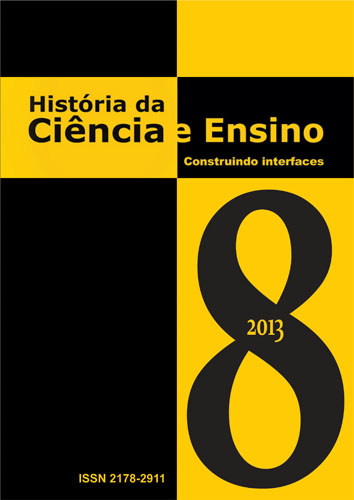Um exemplo de negação do conceito de elemento na filosofia natural
Resumo
Resumo
O foco principal deste trabalho é mostrar como ocorreu uma refutação do conceito de elemento dentro da revolução científica do século XVII, principalmente através da obra The Sceptical Chymist de Robert Boyle. De início será apresentada, brevemente, a noção de elemento pelos gregos na física de Aristóteles e outro exemplo posterior similar, no caso, dos elementos de Paracelso. Depois será exposta a argumentação de desconstrução de Boyle a respeito dos motivos pelos quais o conceito de elemento é nocivo para o estudo da natureza. Concluindo, seguir-se-á rapidamente o ponto construtivo em que uma nova hipótese é apresentada (hipótese corpuscular) como melhor opção para substituir a noção de elemento.
Palavras-chave: Robert Boyle; Noção de elemento; The Sceptical Chymist.
Abstract
The focus of this work is to present an example of refutation of the concept of element inside the seventeenth-century scientific revolution, mainly through Robert Boyle’s The Sceptical Chymist. On the first section of this paper the notion of element as considered by the ancient Greeks in Aristotle’s Physics and modern chemists in Paracelsus will be briefly presented. After that in the second section Boyle’s deconstruction of the idea of element will be exposed considering his argumentation of why this notion is prejudicial to the study of nature. Finally, in the third section follows the constructive stage in which a new hypothesis is presented (the corpuscular hypothesis) as the best option to replace the notion of element.
Keywords: Robert Boyle; Notion of Element; The Sceptical Chymist.


